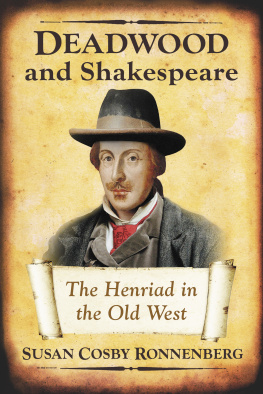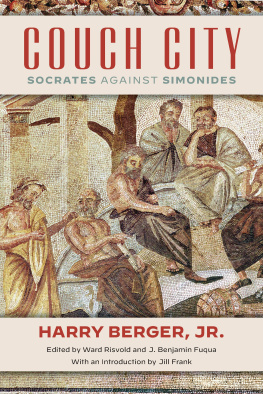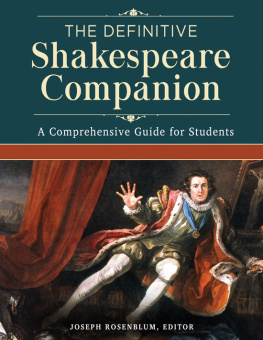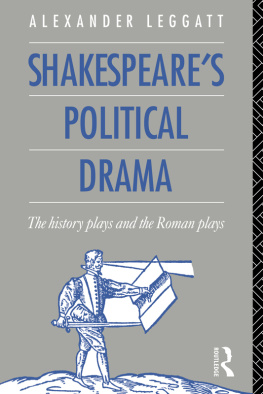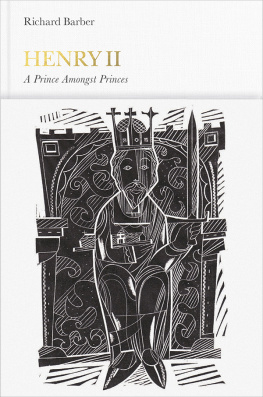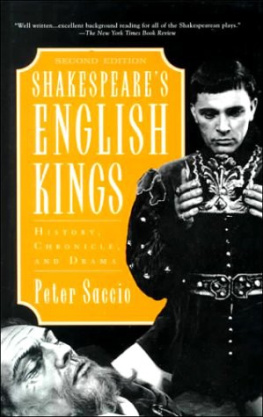HARRYING
HARRYING
Skills of Offense in Shakespeares Henriad

Harry Berger, Jr.

Copyright 2015 Fordham University Press
All rights reserved. No part of this publication may be reproduced, stored in a retrieval system, or transmitted in any form or by any meanselectronic, mechanical, photocopy, recording, or any otherexcept for brief quotations in printed reviews, without the prior permission of the publisher.
Fordham University Press has no responsibility for the persistence or accuracy of URLs for external or third-party Internet websites referred to in this publication and does not guarantee that any content on such websites is, or will remain, accurate or appropriate.
Fordham University Press also publishes its books in a variety of electronic formats. Some content that appears in print may not be available in electronic books.
Visit us online at www.fordhampress.com.
Library of Congress Cataloging-in-Publication Data
Berger, Harry, Jr., 1924 author.
Harrying : skills of offense in Shakespeares Henriad / Harry Berger, Jr.First edition.
pages cm
Includes bibliographical references.
ISBN 978-0-8232-5662-4 (cloth : alk. paper)
ISBN 978-0-8232-5663-1 (pbk. : alk. paper)
ISBN 978-0-8232-5665-5 (electronic)
1. Shakespeare, William, 15641616Histories. 2. Shakespeare, William, 15641616Language. I. Title.
PR2982.H36 2015
822.33dc23
2015008871
to Peter Erickson
With deep gratitude for many years of friendship and for his generosity and for his remarkable critical insight
Contents
Harrying continues the interpretive project I began many decades ago when I began to practice what Ive called reconstructed old New Criticism. This consists in revising the kind of close reading first developed during the 1940s by the so-called New Criticsrevising it in terms of a particular hypothesis: The language Shakespeares characters speak always says more than they mean to say. They try to say one thing. Their language says other things that often question the speakers motives or intentions. Harrying explores the effects of this linguistic mischief on the representation of all the Henriads major figures. But it centers on the portrayal of Falstaff and on the bad faith that darkens the language and performance of Harry, the Prince of Wales who becomes King Henry V.
In Imaginary Audition and Making Trifles of Terrors I treated Richard II as a drama of self-deposition in which the king seems to manage his own undoing and even to select his own heir and maneuver him into usurping the crown. I argued that Richard II and Richard III share a mordancy of language which is sharpened by the bemused, delicious, blank-eyed perception that they can be the knaves they are and get away with so much. What distinguishes them is that whereas in Richard IIIs world everyone deserves what he does to them, Richard II is more selective in his choice of victims: He acts as if he deserves everything he can do or get done to himself. Harrying begins with three chapters that resume and develop, and in some instances modify, this argument.
This project wouldnt have gotten off the ground without the support and contributions of many friends and colleagues. First and foremost, Nina Levine and Peter Erickson. It gives me the greatest pleasure to thank them for sharing their profound understanding of this book in rich and perceptive reports that led me to make many changes in the version they encountered. Once again, as so often in the past, Peters understanding of what I was trying to do was clearer and deeper than mine, and he guided me along interpretive paths I wouldnt otherwise have taken or even found.
Ive been both lucky and blessed to have spent so many years working withor, more accurately, under the guidance oftwo remarkable editors and human beings at Fordham University Press: Helen Tartar and Tom Lay. This was much more than a working relationship: We were a family. The family also includes my wife and best interlocutor, Beth Pittenger, whose love and critical insight have sustained me and improved my thinking and writing for thirty years.
Finally, Im deeply indebted to Lea Puljcan Juric, Helen Hill, and Teresa Jesionowski. To Lea for her excellent work checking, completing, and revising the citations in Harrying. To Helen for turning the mountains of messy pages I made her climb into a green meadow of legible prose. To Teresa for her superb copy editing of the manuscript.
My daughters, Cynthia and Caroline Berger, and Cynthias son, Ezra Berger, didnt have much to do with the actual writing of this book. But along with Beth, they have everything to do with the love thats warmed my life like California sunlight ever since the middle of the last century.
Shakespeares Richard III is a play about a real historical person, a dead tyrant whose wickedness is guaranteed by textual authority. Throughout the play he moves downstage and addresses an audience that he assumes is familiar with him and his story. He performs frequently enough before that audience to make him seem aware of their scrutiny even when hes bustling about upstage in the midst of his plots and perversions. Its obviously important to him to maintain contact with, and also to maintain rhetorical control over, an audience to whom his present doings are (as we say nowadays) history. But what kind of history are they, and whats his particular problem with that history?
During the first thirty-one lines of Richards opening soliloquy his references are vague enough to suggest that his audience possesses general if not detailed familiarity with the sources in Thomas More, Edward Hall, and Raphael Holinshed, as well as with the history covered by the three Henry VI plays that precede Richard III. The most specific references, this sun of York and Grim-visaged war (1.1.2, 9), still presume familiarity with the story. At the end of the soliloquy, the sudden drop into the details of his plots and inductions against Clarence and the King produces the same effect, although the details will be explained as soon as the soliloquy is over and the action begins. Finally, his descant on mine own deformity (1.1.27) is a strong allusion to the sources I mentioned.
So it is that from the opening lines of the play, Shakespeare presents us with a protagonist who seems aware of an audience that knows who he is and where he comes from. Furthermore, he seems eager to explore and test and possibly challenge a prefabricated image of himself floating around in the public domain. Richards performance may be straightforward in that he wears his villainy on his sleeve, but it is complicated by two possibilities. First, the play represents him as a camp version of the Tudor scapegoat. Second, the play represents him presenting himself as a camp version of the Tudor scapegoat.
This view of Richard is not my invention. It has been advanced and explored with variations in a large body of critical work during the past five decades or so. My own sense of the play responds to a particular version of the view, one that can be traced back to A. P. Rossiter (1961) and Nicholas Brooke (1968), and then forward to more recent studies by Patricia Parker and Linda Charnes.
Rossiter argues that since Richard is in effect Gods agent, an angel with horns, the play reveals justice to be the work of a divine will as pitiless as the Devils. As a result, the naive, optimistic, Christian principle of history, consoling and comfortable, modulates into its opposite. Nevertheless, the play is more than a debunking of Tudor myth. Rather it interrogates the absolutes and certainties that myth offers, and it leaves us with relatives, ambiguities, irony.



